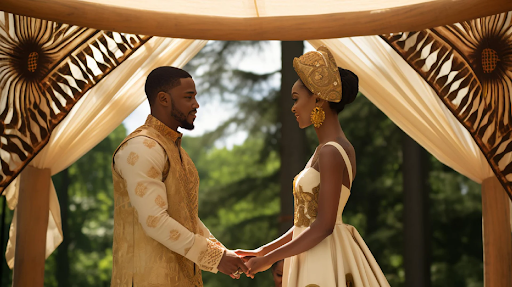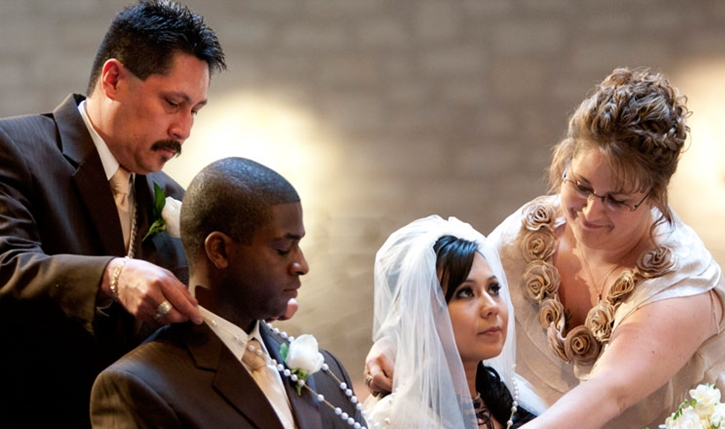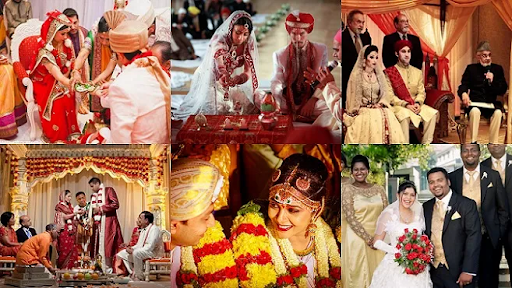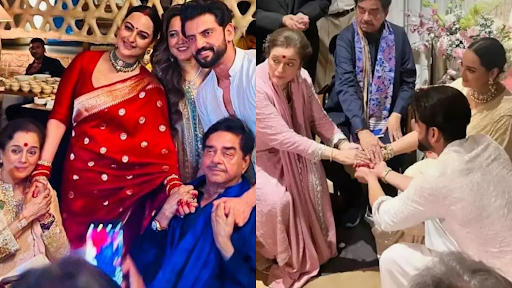Introduction
Marriage is a beautiful bond between two people. Who come together to share their lives, dreams, and goals. However, when two individuals from different cultural backgrounds decide to marry, this is where cultural sensitivity plays a key role.
It’s important to be aware of each other’s cultures. It ensures that the marriage is happy and respectful. Understanding and appreciating each other’s backgrounds creates a stronger bond and a more fulfilling partnership.

Here, we discuss why cultural sensitivity is crucial in marriage and how we can do that better together.
1. What is cultural sensitivity?
Cultural sensitivity means being aware of and respecting cultural differences. It’s about understanding and respecting different beliefs.
It also shows the practices and values that partners bring into a marriage. This is important for building mutual respect and understanding. It is essential for a successful relationship.
It involves viewing people’s intentions. Different cultures may see the world differently, and that’s okay. Do not judge these differences. Cultural sensitivity encourages openness and curiosity. It is a willingness to learn from one another.

2. Why does cultural sensitivity matter in marriage?
The importance of cultural sensitivity is necessary. It allows us to understand and respect each other’s cultures. In marriage, it inspires unity and closeness.
It helps in handling differences in traditions and values. It also promotes effective conversation and a strong relationship.
- Respect and Understanding:
In intercaste marriages, respecting each other’s backgrounds is fundamental to building a strong and harmonious relationship. Acknowledging and valuing the cultural, religious, and familial traditions of your partner fosters mutual understanding. This respect not only strengthens the bond. But also helps in creating a balanced and inclusive partnership.
By actively learning about and honoring each other’s heritage, you prevent feelings of being undervalued. By ensuring that both partners feel equally respected. Such an approach lays a solid foundation for a relationship. It promotes a sense of unity and collaboration as you handle your shared journey together.
- Respect and Understanding:

- Enhances Communication: Cultural sensitivity is crucial in enhancing communication between spouses. It fosters an environment where open and respectful discussions about each other’s traditions, celebrations, and everyday habits can thrive. Understanding and appreciating the cultural differences that shape your partner’s upbringing promotes empathy and avoids misunderstandings.
By engaging in conversations about your different cultural practices and how they influence your daily life. It will help to create opportunities for mutual learning and adaptation. This cultural awareness helps to bridge gaps, harmonize differing practices, and integrate traditions in a way that respects both backgrounds.
- Strengthens Emotional Bond: When partners deeply understand each other’s culture, it becomes easy for them to connect more deeply. For developing deep emotional bonds Celebrate cultural traditions. This helps you to understand cultural histories. Also, participate in cultural activities together.
- Facilitates Conflict Resolution: Cultural sensitivity can effectively resolve conflicts in marriage. It helps to understand the reasons behind behaviors. This helps you find the main causes of conflicts. This approach leads to lasting and peaceful resolutions.
- Family Dynamics:
Different cultures have distinct family dynamics and roles, which can significantly influence interactions within the extended family. Understanding these cultural differences is essential for preventing confusion and conflict. Each culture may have unique expectations regarding family responsibilities, decision-making processes, and roles within the household.
By understanding and respecting these variations, you can better navigate family interactions and avoid misunderstandings. This cultural awareness fosters a more harmonious environment by promoting mutual respect and facilitating smoother integration into the extended family.
Open communication about these dynamics helps in addressing any potential issues proactively, ensuring that all family members feel valued and included, and creating a supportive and cohesive family environment.

- Raising Children:
For couples planning to have children, cultural sensitivity becomes increasingly important. It plays a pivotal role in incorporating both cultures into their children’s upbringing. It ensures that the children grow up with a rich and diverse cultural heritage.
By blending traditions, values, and practices from both backgrounds, you provide your children with a well-rounded understanding of their identity and heritage. This approach fosters a sense of pride and belonging in their multicultural roots. This will help them appreciate and celebrate their diverse backgrounds.

3. How to Cultivate Cultural Sensitivity in Marriage?
- Open Communication: Open and honest communication is key to developing cultural sensitivity. Share stories, traditions, and beliefs with each other. Ask questions and genuinely show interest. Understand your partner’s cultural background.
- Educate Yourself: Take the initiative to learn about your partner’s culture. Read books, watch documentaries, and attend cultural events. Try to learn the language if it’s different from your own. These efforts show respect and a willingness to welcome their culture.
- Celebrate Diversity: Celebrate each other’s cultural festivals and traditions. It sparkles in your lives and shows respect for each other’s heritage. This also helps in creating unique family traditions.

- Be Patient and Understand:
Cultural differences can sometimes lead to confusion. Having patience and giving time to figure things out are keys.
When facing conflicts, approach them with understanding. Do not blame. This approach makes it easy to find effective solutions. That honors both partners’ viewpoints.
- Seek support if needed: Cultural differences sometimes become a serious source of conflict. Do not hesitate to seek support. This could be through counseling. Talk to friends or family members, or join support groups for intercultural couples.
Conclusion
Cultural sensitivity is crucial in marriage. Not because it’s just something nice to have. It builds respect, improves communication, and strengthens emotional ties. It helps to resolve conflicts and enriches family life.
Welcoming cultural sensitivity can turn challenges into opportunities for growth, learning, and stronger connections. Valuing and respecting each other’s cultural backgrounds. Couples can build a strong, harmonious relationship.

